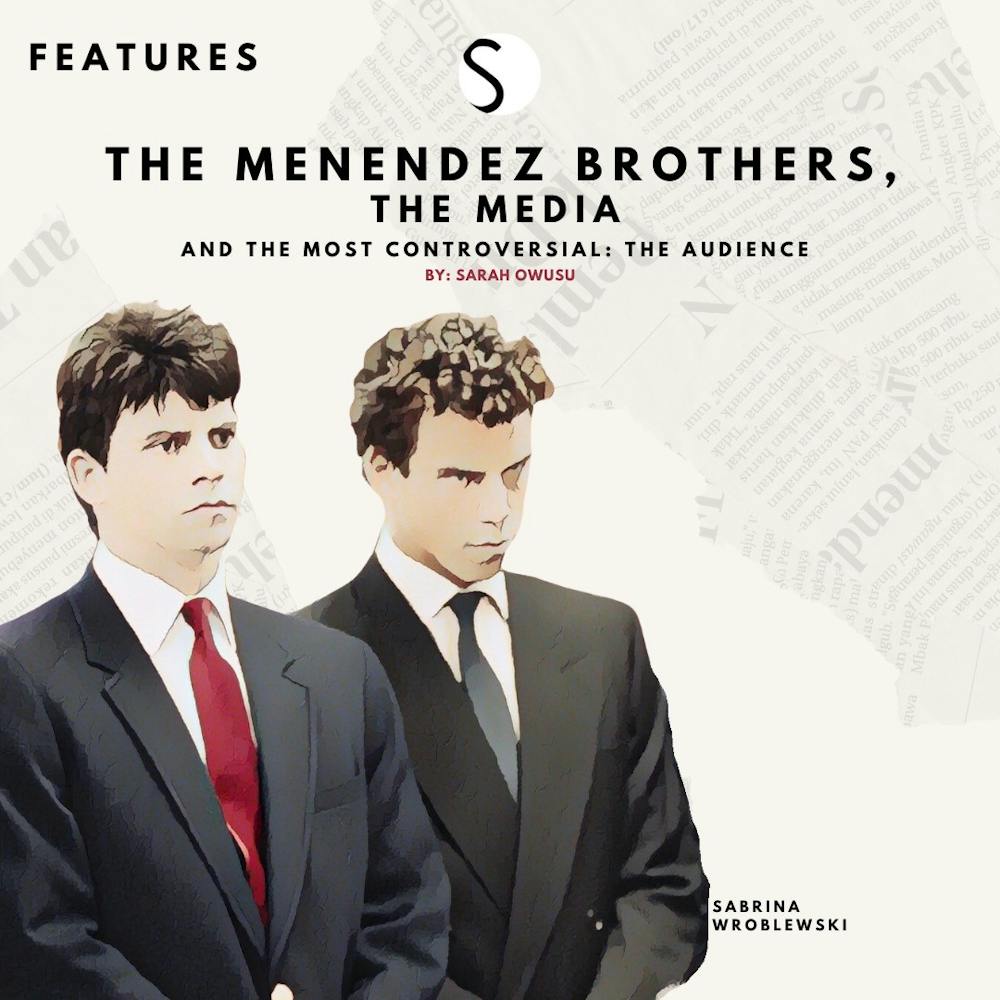In the summer of 1989, Lyle and Erik Menendez killed their parents, José and Kitty. In court, the brothers argued that they did so in self-defense after years of emotional, psychological and sexual abuse by their father.
The brothers underwent two trials, and in the second, the jury found them guilty of first-degree murder, and sentenced them to life in prison without the chance for parole.
35 years later, on Sept. 19, the Netflix series, “Monsters: The Lyle and Erik Menendez Story” premiered and made the case an instant pop-culture phenomenon.
But it's also caused controversy. Many have called for the release of the brothers, with one petition reaching over 100,000 signatures.
“I think sometimes we bring a different set of standards to celebrities than we do to regular people,” UB English professor David Schmid said. “You're going to have people on the one hand who are going to believe immediately that [they’re] guilty of everything and on the other hand, there are going to be people who are going to believe [they’re] absolutely innocent.”
On Oct. 5, 2024, the Los Angeles County District Attorney announced that they were reviewing the Menendez brothers’ case because of new evidence that showcases the sexual abuse the brothers faced. A hearing to review the habeas petition put forward by the brothers’ attorneys is set for Nov. 29.
Schmid says that the highly publicized nature of celebrity cases such as this one make it “very difficult” to find a jury pool that “doesn’t already know about the case.”
Ryan Murphy, creator of the series, has faced backlash for his depiction of the brothers. Erik Menendez called out Murphy for his depiction of him and his brother, calling it a “dishonest portrayal,” “grotesque,” and “horrible lies.”
Murphy responded, saying, “I know he hasn’t watched the show. So I find that curious. I hope he does watch it.”
Schmid agrees that Murphy's work is exploitative, but he adds that it shouldn’t take the consumer of true crime off the hook.
“Anyone who watches these types of shows needs to carefully and more consistently think about why they do so,” Schmid said. “It's not enough to say it's escapism. It's not enough to say, ‘this is how I relax.’ Audiences need to think carefully about why they enjoy watching other people's pain and suffering.”
“I think the general public has trouble separating the real-life brothers and the characters portrayed in the show,” doctoral communication student Margaret Taggart said.
Taggart went on to explain that she only consumes older true crime, because when shows are made so close to the time of the crime, audiences tend to dissect every aspect of the case, which affects real victims and people involved in the crime.
Taggart says that consumers of true crime need to remember that they are viewing dramatized depictions of real events about real people. “It is easy to feel removed from the reality of these cases when consuming the information through the lens of fiction,” she said.
Schmid emphasized the need to play a more active role in where one gets their information from, sources that are backed by research, and not television shows.
Sarah Owusu is the senior features editor and can be reached at sarah.owusu@ubspectrum.com

Sarah Owusu is an assistant news editor at The Spectrum. In her free time she enjoys reading, baking, music and talking politics (yes, shockingly). She'll also be her own hairdresser when she needs a change.





